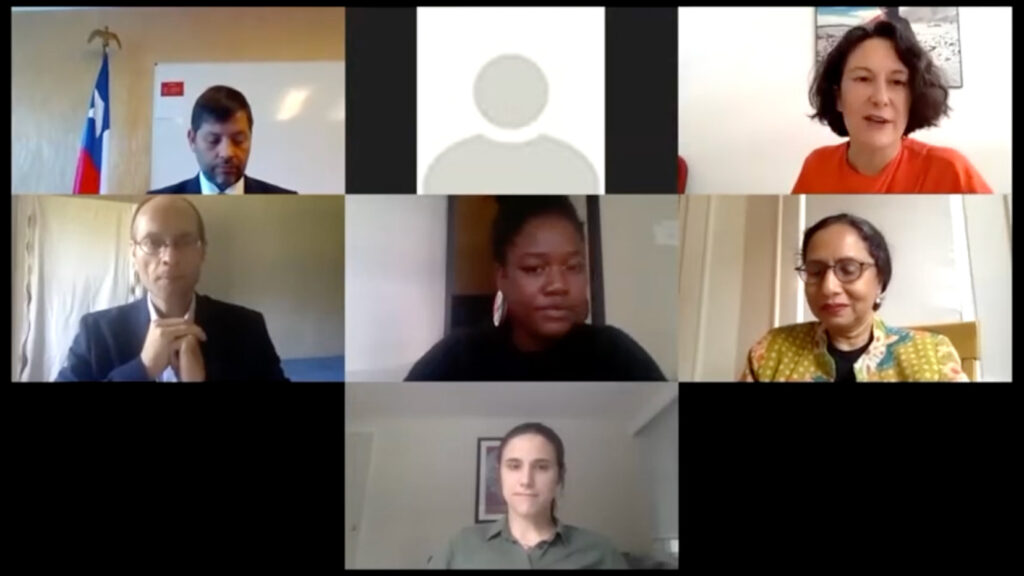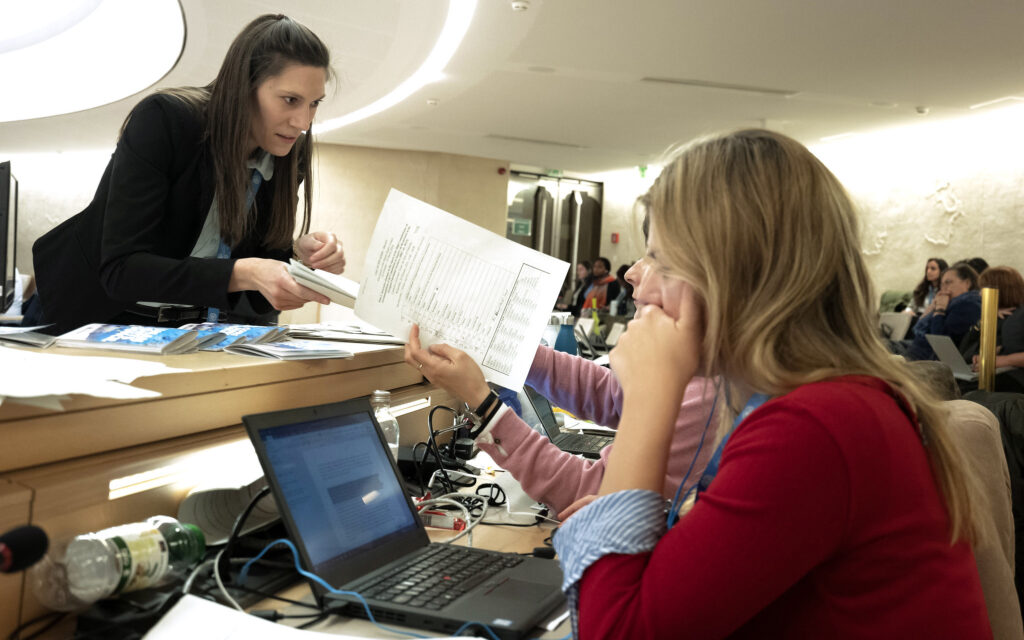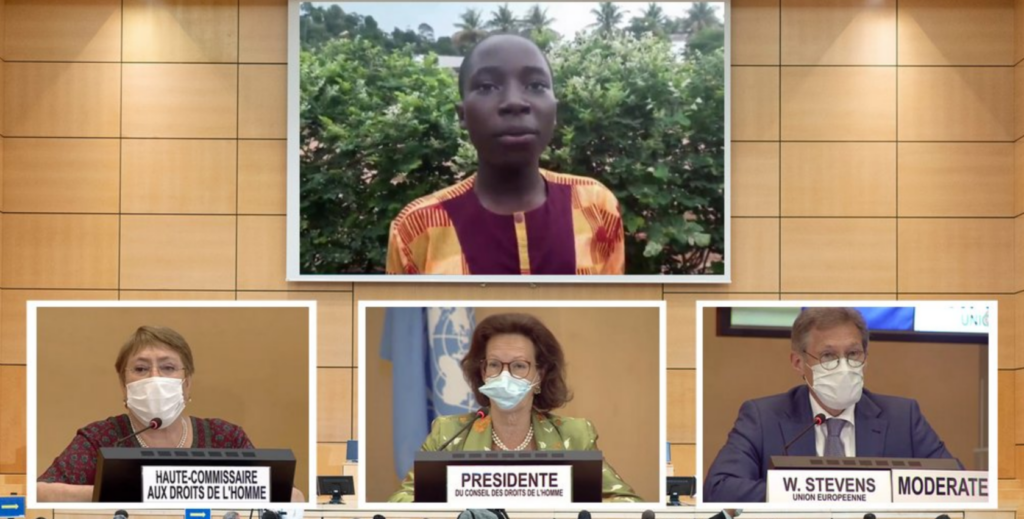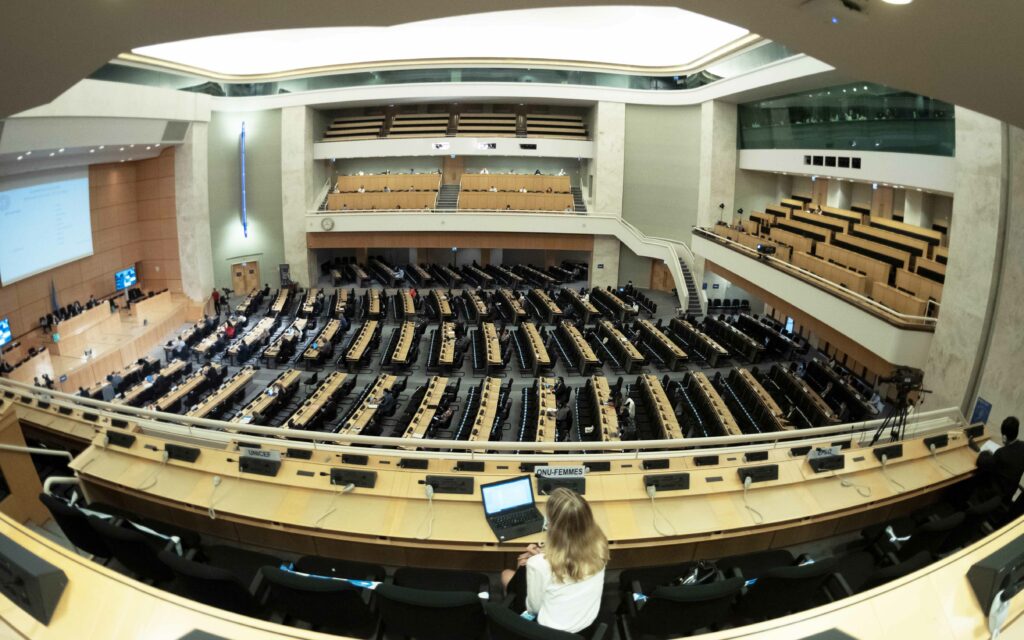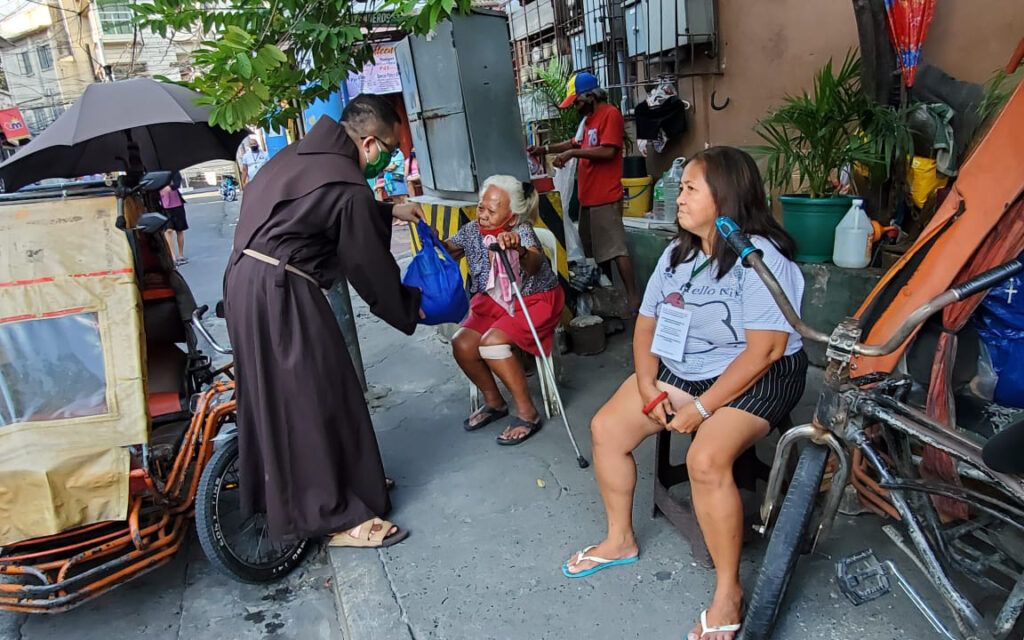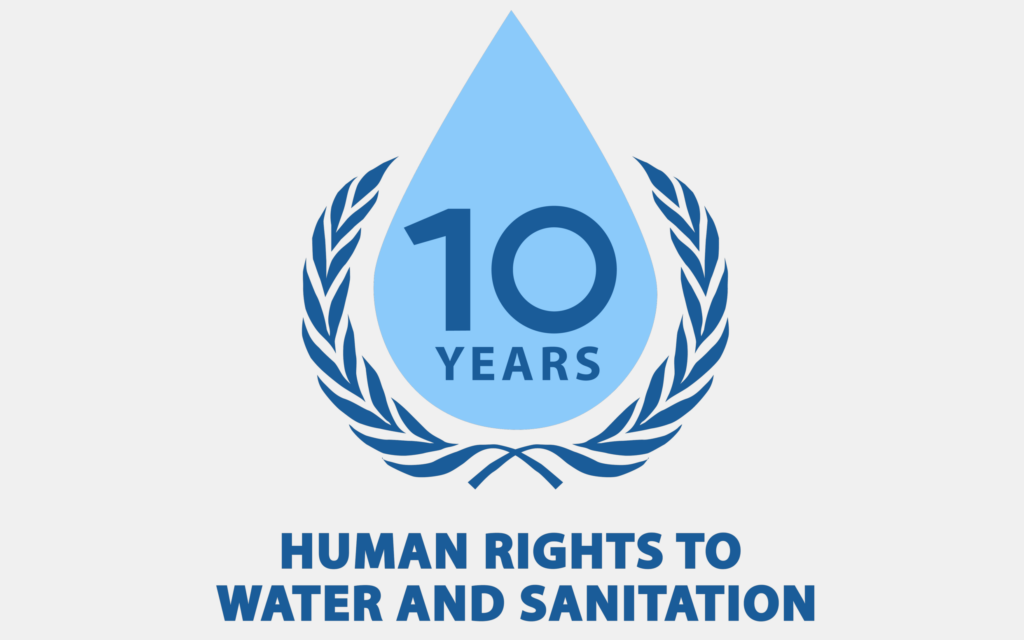As we, the entire staff of Franciscans International, are confined but healthy in our respective homes in Switzerland, the USA, and France, we are made more aware every day of our privileged situation, despite the unusual and uneasy circumstances in which confinement is putting us.
In the first weeks of this crisis, we were carefully observing not only the development of the situation but also the reaction of the United Nations (UN), other human rights experts, and States. We continue to do so. However, as it has become clear that the epidemic has definitively turned into a pandemic with a terrible death toll and that extraordinary measures will last for months, our Franciscan Sisters and Brothers, colleagues, and friends from various parts of the world are reaching out to share with us the dire situations they are experiencing, confronted with, and witnessing.
It is to relay some of these testimonies and stories and to put them in a more global picture that we issue this statement today.
From a human rights perspective, the issues raised by the pandemic are manifold and the impacts numerous at various levels.
From the failure of States to take the necessary measures to prevent such situations…
The last months have shown how some States have failed to take timely and necessary measures to protect the health of their populations, thus failing to comply with their international human rights obligations to protect the right to health.
According to the UN,1 this protection shall include prevention, treatment and control of diseases that requires, among others “the creation of a system of urgent medical care in cases of (…) epidemics and similar health hazards, and the provision of disaster relief and humanitarian assistance in emergency situations.” Moreover, under international human rights law, the right to life also imposes a duty on States to protect life by taking adequate measures to ensure timely access to essential goods and services such as food and water, and to provide effective emergency health services or shelters.
The individual and collective failures of States to prevent the crisis the world is currently facing came not without warning. In September 2019, months before the first cases of COVID-19 infection were declared but after the SARS, Ebola, and Zika outbreaks, to name only a few, a body of independent experts convened by the World Health Organization and the World Bank urged to prepare for the worst: a rapidly spreading, lethal respiratory pathogen pandemic.2 This group of experts criticized the gross inadequacy of the preparedness efforts made globally, especially in light of the disproportionate impacts and suffering that this failure would have on the poor, and in light of the vulnerability of all economies to such shocks.
Furthermore, other scientists3 have highlighted the link between the increasing risks, and actual instances of spreading, of new viruses transmitted by animals to humans, and the rapid environmental degradation, deforestation, loss of habitats, and illegal trade.
But here we are. Analogous to what our colleagues in El Salvador say about natural catastrophes: the real disaster is not so much events like the COVID-19 pandemic, but the lack of preparedness and inappropriate responses to them. In a situation like this, already existing discrimination and inequalities, as well as latent vulnerabilities, are severely aggravated and express themselves in radical ways.
… through direct and indirect impacts on human rights of the pandemic and of the response by States…
The health of virtually the entire world population is at risk when a pandemic occurs. Under international human rights law, States are required to create conditions that would assure medical service and medical attention to all in the event of sickness. Yet, what COVID-19 has shown is how dangerous and irresponsible the disregard for, and lack of investment in, public health systems are in general, and in these situations in particular. Similarly, the absence of broad health coverage and access to health services and goods have dire consequences in societies. The cuts to and dismantling of public hospitals and health care in the State of New York is only one of many examples.4 Overall, the structural lack of capacity of public health systems in many countries implies that the extra burden generated by COVID-19 will deprive patients with other conditions and health issues of the care they need.
The impact of the pandemic on other human rights such as freedom of movement, freedom of assembly, and the right to work and labor rights, is also clear across the world. Many COVID-19 related restrictions on freedoms and rights make the work of journalists and human rights defenders worldwide even more difficult and dangerous. The situation of persons at risk of domestic violence, in particular women and girls, is another issue of great concern in these times of confinement of populations, coupled with the paralysis of many administrative and other authorities. Sometimes this occurs with the complaisance or even complicity of the highest power of the State, like in Uganda, where President Museveni explained twice in a press conference that authorities would not respond to cases where a husband beats his wife, as “emergencies” requiring a response would be limited to health and child birth.5
Additionally, in States like China, Taiwan, Israel and the USA, the right to privacy is at risk when cell phone location data is used to check compliance with restrictions on movement and social distancing, or to divulge the location of infected people and warn others in their surroundings. In that regard, we should remember that States explicitly recognized in 2016 the duty to protect the rights of people online just as they shall do offline.6
We will continue to assess State responses, and to what degree States are able and willing to protect these rights as much as the situation allows, and how proportionate the limitations on these rights and emergency laws are. In the Philippines, for example, our Franciscan partners shared with us the declaration of President Duterte, which avowed that people who break the quarantine should be shot dead by police or military; President Duterte is already infamous for the numerous extrajudicial killings conducted during his so-called ‘war on drugs.’ While international law permits the limitation of rights in extraordinary situations such as public health emergencies, such limitations must respect certain standards. Among others, these measures should be provided for and implemented in compliance with the law, should not be imposed arbitrarily, nor be discriminatory.
In that regard, many stories and testimonies across the world show how, while the virus can infect anyone, the impact of the pandemic and the responses to it are not affecting everyone in the same manner. Some measures taken in response to the pandemic may disproportionately affect the people and communities who are already discriminated, disadvantaged, and marginalized; people who do not benefit from the same capacities and means to cope with the hardships and restrictions that the situation brings.
This is undoubtedly true for millions of refugees, asylum seekers, and migrants in camps and detention centers who regularly lack access to clean water and food. We have also seen images of homeless people in California, USA, being directed to sleep on a parking lot after their shelter closed. Even in the highly challenging circumstances we are facing, human rights compliant measures can be taken including those that aim to rectify past human rights abuses. For example, France has requisitioned hotel rooms to ensure that homeless people who are not ill can be safe and abide by confinement measures. In Detroit, USA, where the UN had heavily criticized the disconnection of poor people from water services for inability to pay their bills and deemed it a violation of the right to water, the government reinstalled water to homes that had shutoffs so that basic measures like washing hands can be followed. The large gaps in access to clean water worldwide are posing an enormous challenge to the fight against the virus, and underscoring the need for States to respect, protect, and fulfill the right to water.
For millions of self-employed and workers in the informal sector who do not have access to social protection, the lockdowns imposed across the world means no income. Franciscans partners in the Philippines shared with us their despair of not knowing how they can satisfy the needs of all the poor families who turn to them for food to eat. The same Franciscans ask how, in this situation, they can ensure safe sanitary conditions for the families and for themselves.
In India, one of our Franciscans partners conveyed to us how the inadequate time between the announcement and the actual lockdown – just 4 hours – created the conditions for a tragedy, with millions of workers in cities trying to reach their villages of origin while public transportation was halted. Some of these migrant workers have since died on the way. Our partner also warned that many more people will likely die of hunger and of other causes related to the lack of timely and effective aid and support by the government. Relatedly, Baskut Tuncak, a UN expert on human rights and the use of toxics, has denounced the anti-infection practice, as reported in India, of hosing migrant workers with bleach as inhumane.7
Overall, UN experts warn of a surge in racism and xenophobia, not least against migrants and asylum seekers who face a range of additional hardships and issues due to the pandemic. As we heard from our Franciscan network and other colleagues between the USA and Central America, migrants and asylum seekers are often left without information, access to tests and health care, or food. They lack the means to attend to their basic needs as shelters cannot host them and most administrative authorities are paralyzed. They continue to be deported en masse from the USA or are left stranded in Mexico or Guatemala. Thousands have been stopped in their journey with little capacity to cope with unplanned long transits, ending up on the street. Entire families who depend on the money that migrants normally send back are left without this vital support. At the same time, some States have showed that positive measures can be taken to support human rights and public health. Portugal temporarily granted the same status as residents to all foreigners, including migrants and asylum seekers with pending requests, until at least July 2020, which provides them with access to the national health service and welfare benefits, allows them to open bank accounts, and enter into work and rental contracts.
… through the fact that some are always gaining from catastrophes but not those whom you may optimistically think of…
While poor and other marginalized groups are paying the highest price, not everyone is losing in this situation. You may think of the reportedly positive aspects of the lockdowns, at least for nature and climate. However, what has actually become clear is how some businesses are continuing undisturbed or are even profiting from the crisis. As our Franciscan partners in Brazil alerted us, President Bolsonaro declared mining an essential activity that should continue during the lockdown; however, any protest by communities affected by mining is rendered impossible.
Also there is an increasing number of reports according to which not only pharmaceutical companies, but also some supermarkets and discounters in Europe are seeing their valuations and profits rise due to the surge in consumers buying food reserves, while imposing lower prices on their suppliers and on small producers.
Now that millions of people are working from home and even more are relying on social media and on online communication for work and social interactions, the issue of our right to privacy and of the safety and use of our data, not least by powerful private actors, is of an unprecedented concern.
… to the uncertainty of the long-term effects of the COVID-19 “crisis” and the consequences that the international community may or may not draw.
While the increase in online activities also requires more energy, the pollution generated by the use of cars, planes, and public transportation have significantly decreased with the lockdowns. However, it remains unclear how transport and industries will attempt to ‘bring back’ their business once this crisis is over, and whether we will not witness massive increases in greenhouse gas emissions again in the near future due to economic recovery plans boosting key sectors. What is already clear, though, is that the next international climate conference, COP 26, that was supposed to take place in Glasgow in the UK this year, has been postponed to 2021. Our climate and our common home may thus not benefit as much as we would hope from this break.
As some critical voices8 have started to say, we should not wish a return to normality, as long as normality equates environmental destruction and egregious inequalities. Instead, we should draw lessons from past failures; build on some good practices that States came up with during the pandemic; push for a change in our model of development; shield social services and rights from business interests and greed and, last but not least, cultivate the fraternity and solidarity within and across communities that we are seeing amid the global governance crisis.
In that regard, this statement is also a tribute to the contribution of our Franciscan and other partners to the upholding of human dignity and lives in these challenging times.
- [1] UN Committee on Economic, Social and Cultural Rights, General Comment 14 on article 12, 2000, para.16.
- [2] Global Preparedness Monitoring Board, A world at risk: annual report on global preparedness for health emergencies, Geneva, World Health Organization, 2019.
- [3] See for instance: www.scientificamerican.com/article/destroyed-habitat-creates-the-perfect-conditions-for-coronavirus-to-emerge/; or revistaanfibia.com/cronica/las-nuevas-pandemias-del-planeta-devastado/
- [4] See for instance: https://www.thenation.com/article/politics/covid-ny-hospital-medicaid/; or https://www.commondreams.org/views/2020/03/30/corporate-media-ignores-how-privatization-us-hospitals-explains-lack-beds
- [5] See full Presidential declaration at https://www.youtube.com/watch?v=veq6Lbi4Mok. Specific statement between 59:40 – 1:00:20.
- [6] Resolution adopted by the UN Human Rights Council on 1 July 2016, The promotion, protection and enjoyment of human rights on the Internet, UN Doc. A/HRC/RES/32/13, page 2.
- [7] Read the UN Special Rapporteur´s comments on twitter at https://twitter.com/SRtoxics/status/1244747265811664896?s=20
- [8] Statements have been made by various international leaders and activists, including UN Secretary General, Antonio Guterrez; or Journalist Naomi Klein.

